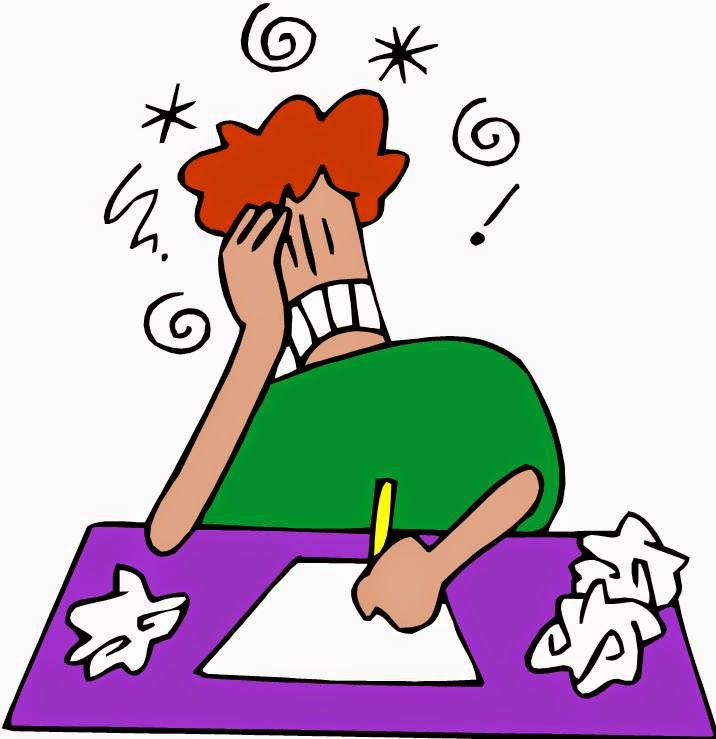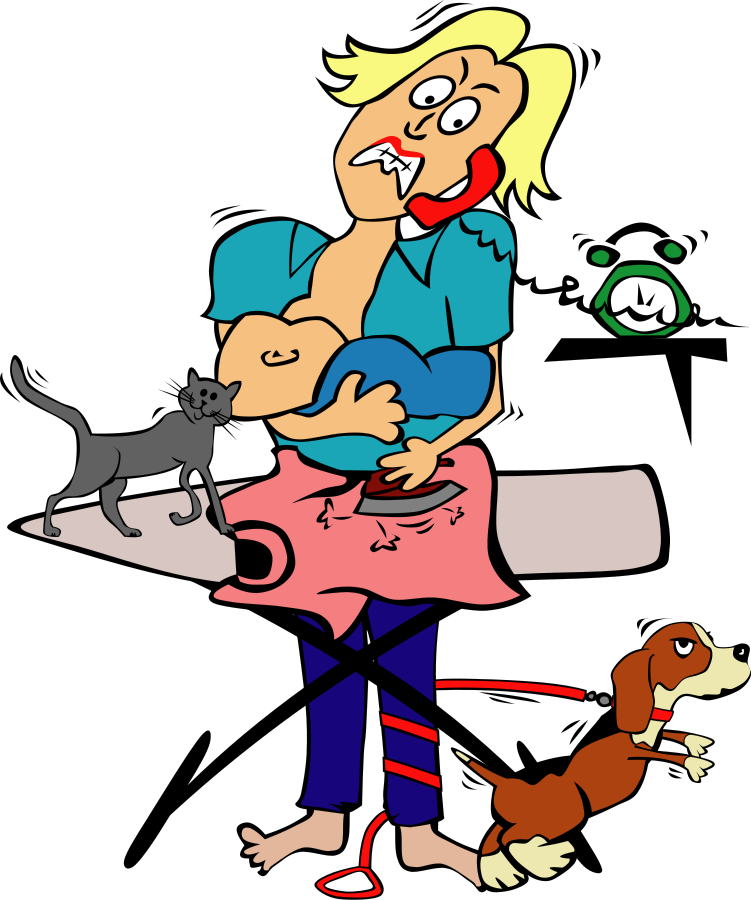If you’ve been writing for any length of time or ever been faced with a writing deadline, then you’ve probably smacked into the brick wall that confronts us all eventually: writer’s block.
This article is all about providing you with tools and methods for overcoming writer’s block.
Because …
While nearly every author goes through periods when words come slowly if they come at all, the truth is that these word stoppages are not inevitable, and you can overcome them with the proper help.
And that’s what this guide is all about — helping you find the information you need to get your writing moving again when you can’t find the words on your own.
Luckily for all of us, the Internet has brought together writers from all over the world, and most of us are eager to share the tips and tricks of the trade that we’ve learned over the years. Now, the best of the best in busting writer’s block is available in one place — right here!
What you’ll discover below is a collection of nearly 90 of the best articles on the web for breaking through the various forms of writer’s block.
Here is the complete list of tools for overcoming writer’s block, broken into 9 categories so you can focus on the areas that concern you most at any given time.
Table of Contents
.
[/et_pb_text][et_pb_text admin_label=”What Is Writer’s Block?” _builder_version=”3.27.4″ background_size=”initial” background_position=”top_left” background_repeat=”repeat” custom_margin=”||30px|” custom_padding=”20px|20px|20px|20px” border_width_all=”0px” border_color_all=”#919191″ border_style_all=”solid” use_border_color=”on” border_color=”#919191″ border_style=”solid”]Chapter 2
What Is Writer’s Block?
Given how ubiquitous writer’s block seems to be among writers of all types and experience levels, you would think we’d have a good handle on at least what it is. As it turns out, that’s not quite the case. There are as many definitions of “writer’s block” as there are ways to overcome it, but that’s not necessarily a bad thing. When you’re trying to diagnose a malady as insidious and nebulous as this, you need all the help you can get in identifying the symptoms. Here are some of the best resources on the web for pinpointing not just whether you have contracted writer’s block but from which form of the ailment you suffer. (Return to Table of Contents)- How to Beat the 3 Types of Writer’s Block by Ali Luke
- The 4 Types of Writer’s Block (and the 1 Intervention that Cures Them All) by Jessica Stillman
- 4 Types of Writer’s Block and How to Get Over Them by Emily Herzlin
- 4 Types of Writer’s Block and How to Power Through by Phil Rzucidlo
- 5 Kinds of Writer’s Block Everyone Faces by Marc Cortez
- The 6 Types of Writer’s Block by Aimee Meester
- 8 Different Types of Writer’s Block by Shirley Corder
- The 10 Types of Writer’s Block (and How to Overcome Them) by Charlie Jane Anders
- The Different Types of Writer’s Block by Michelle Prince
- Writer’s block by Wikipedia
- Lack of ideas
- Distractions
- Procrastination
- Perfectionism
- Lagging motivation
- Lack of commitment
- Little available time
- Weak confidence
(Image courtesy of cliparts.co)
[/et_pb_text][et_pb_text admin_label=”Finding Ideas” _builder_version=”3.27.4″ background_size=”initial” background_position=”top_left” background_repeat=”repeat” custom_margin=”||30px|” custom_padding=”20px|20px|20px|20px” border_width_all=”0px” border_color_all=”#919191″ border_style_all=”solid” use_border_color=”on” border_color=”#919191″ border_style=”solid”]Chapter 3
Finding Ideas to Fuel Your Writing
It’s probably what most people — at least non-writers — think of when they hear the term, “Writer’s Block”: you just can’t come up with an idea for your next story, novel, or blog post. And it makes sense, too, because every story starts with a fairly simple concept and blossoms from there. Some ideas mushroom almost before you even realize you’ve had an inspiration, and some take active cultivation. But what happens when you run dry? How can you restore your muse’s voice when she goes mute? The truth is, story ideas are all around us if we’re receptive to them. These articles will help you open your senses and pick up the trail of your next great tale. (Return to Table of Contents)- 10 Tricks for Getting Inspired to Write by Jon Morrow
- 11 Writers on Writing Inspiration by K.M. Weiland
- 21 Unexpected Places to Find Your Writer’s Muse by Anne-Sophie Reinhardt
- 31 Ways to Find Inspiration for Your Writing by Leo Babauta
- Calling on the Muse: A Meditation for Writers by Mary Sharratt
- How 50 Famous Authors Find Writing Inspiration by John Fox
- How to Care for Your Writing Muse by Lisa Tener
- How to Discover Your Writer’s Muse by Harvey Chapman
- How to Get Inspired to Write in 10 Minutes or Less by Henri Junttila
- Quotes About Writing Inspiration by Goodreads
- Writing Prompt Generator by Seventh Sanctum
(Image courtesy of cliparts.co)
[/et_pb_text][et_pb_text admin_label=”Eliminate Distractions” _builder_version=”3.27.4″ background_size=”initial” background_position=”top_left” background_repeat=”repeat” custom_margin=”||30px|” custom_padding=”20px|20px|20px|20px” border_width_all=”0px” border_color_all=”#919191″ border_style_all=”solid” use_border_color=”on” border_color=”#919191″ border_style=”solid”]Chapter 4
Eliminating Distractions
Distractions have always been a problem for writers, and that’s never been truer than it is now. Whereas in generations past, we might have had trouble moving past the television or hearing over the cacophony of children, pets, and ringing phones that invade adult life, at least we were pretty safe once we actually got to our writing desks. Now, just getting ourselves in front of the keyboard is no guarantee that we will be able to shut out the diversions that derail our writing. In fact, with all the wonders of the internet, our next work stoppage is never more than a couple of keystrokes away. If you find yourself in a constant struggle to shut out the distractions that peck at us from all directions, these articles will help you devise a plan for quieting your world and your mind so you can get down to business. (Return to Table of Contents)- 5 Strategies to Banish Writing Distractions for Good by Suzannah Freeman
- 7 Ways to Block Out the Noise and Distractions So You Can Write by Nina Amir
- 10 Sneaky Strategies to Eliminate Writing Distractions by Janalyn Voigt
- Five Ways to Reduce Distractions When Writing by Miranda Marquit
- How to Cheat Your Creative Distractions by Chris Smith
- Minimise Distractions When Writing: 4 Practical Tips by Ali Hale
- The Relationship Between Distractions and Writing by Gay Walley
- Stay Focused: 4 Ways to Delete Writing Distractions from Your Life by Meg Dowell
- Stop Interrupting Me! Distractions Kill Writing Quality by Cyrus Foroughi
- Write More: 7 Tips for Dealing with Writing Distractions by Corina Koch Macleod
(Image courtesy of cliparts.co)
[/et_pb_text][et_pb_text admin_label=”Procrastination” _builder_version=”3.27.4″ background_size=”initial” background_position=”top_left” background_repeat=”repeat” custom_margin=”||30px|” custom_padding=”20px|20px|20px|20px” border_width_all=”0px” border_color_all=”#919191″ border_style_all=”solid” use_border_color=”on” border_color=”#919191″ border_style=”solid”]Chapter 5
Overcoming Procrastination
Come on, admit it: sometimes you allow yourself to be distracted because you want to delay digging into your next writing foray. You have a great idea, an ideal working space, and time to write, but you just … keep … putting … it … off. Maybe it’s fear of failure or a lack of motivation or trouble getting started — see the other chapters in this guide for help with those — but you can’t seem to get going on your project and convince yourself that it can wait until later. The resources below will help you take that first step and put your writing plan into action sooner rather than later. (Return to Table of Contents)- 3 Keys to Writing Success and Overcoming Procrastination by Shelley Hitz
- 6 Ways to Overcome Procrastination and Beat Writer’s Block by Bec Evans
- 7 Ways to Stop Procrastinating and Start Writing by Seth Baker
- 15 Tips for Postponing Writing Procrastination by Meggin McIntosh, Ph. D.
- End Writing Procrastination Now: 7 Steps by Bridget McNulty
- Fighting the Blank Page: How Famous Writers Stopped Procrastinating by Michael Seidlinger
- How to Easily Beat Writing Procrastination by Janice Wald
- How to Stop Procrastinating and Start Writing by Joanna Penn
- How to Stop Procrastinating: 5 Foolproof Methods for Writers by Alicia Dara
- How Writers Can Stop Procrastinating Forever by Carol Tice
- Writing: The Real Reason You Procrastinate by Kenneth Merchant
(Image courtesy of cliparts.co)
[/et_pb_text][et_pb_text admin_label=”Overcoming Perfectionism” _builder_version=”3.27.4″ background_size=”initial” background_position=”top_left” background_repeat=”repeat” custom_margin=”||30px|” custom_padding=”20px|20px|20px|20px” border_width_all=”0px” border_color_all=”#919191″ border_style_all=”solid” use_border_color=”on” border_color=”#919191″ border_style=”solid”]Chapter 6
Moving Past Perfectionism
Have you ever sat down at your keyboard all fired up to crank out a great story, banged out a few sentences, and then — boom! — got stuck? You backspace every couple of words and fuss over every bit of punctuation. You labor over your word choice, searching for the perfect tone and connotation in every syllable. Before you know it, an hour has passed, and you’re sweating through your clothes. You’ve written maybe 200 words — maybe — and you’re not really happy with any of them. If this sounds familiar to you, then you’ve had firsthand experience with the bugaboo of perfectionism. Aspiring to be the best that you can be is an admirable goal, but trying to be perfect is stifling and can lead you down the road of full-blown writer’s block before you even realize you made a wrong turn. Luckily, there are techniques that can help, and these articles will get you started on a “cure.” (Return to Table of Contents)- 4 Tips for Overcoming Perfectionism for Writers by Laurie Pawlik-Kienlen
- 6 Ways for Writers to Overcome Perfectionist Tendencies by Jeff Goins
- 8 Steps to Overcome Perfectionism and Write the !$#@ Paper by Elizabeth Mack
- 10 Writing Hacks to Overcome Perfectionism and Just Start Spitting It Out by Kevin Wofsy
- 17 Signs Perfectionism Is Killing Your Writing Dreams by Mandy Wallace
- Dealing With Perfectionism as a Writer by Veronica Sicoe
- An Excellent Guide to Overcoming Perfectionism by Jon Brooks
- How to Defeat Your Perfectionism in Writing by Ruthanne Reid
- How to Overcome the Fear of Writing by Henri Junttila
- The One Thing You Need to Know to Overcome Perfectionism by Erin Dougherty
- Perfectionism in First Drafts by Ben Schmitt
- This Simple Writing Technique Will Help You Overcome the Inertia of Perfectionism by Bryan Collins
(Image courtesy of cliparts.co)
[/et_pb_text][et_pb_text admin_label=”Writing Motivation” _builder_version=”3.27.4″ background_size=”initial” background_position=”top_left” background_repeat=”repeat” custom_margin=”||30px|” custom_padding=”20px|20px|20px|20px” border_width_all=”0px” border_color_all=”#919191″ border_style_all=”solid” use_border_color=”on” border_color=”#919191″ border_style=”solid”]Chapter 7
Finding the Motivation to Write
Even if you have the perfect story idea and a plan to eliminate distractions, sometimes you’re just not enthused to write. Procrastination (see above) can be a symptom of such a condition, but you might be better served to treat the root cause — often a lack of motivation. If you find that you’ve lost some of the fire and joy that writing used to bring you, read through these articles for pointers on how to turn things around. You’re sure to find a nugget or two that will remind you why you’re writing in the first place and get you rearing to go again. (Return to Table of Contents)- 7 Ways to Motivate Yourself to Write by Stephanie Orges
- 10 Tricks to Motivate Yourself to Write — Right NOW by Ollin Morales
- 20 Inspirational Quotes for Writing Motivation by Elena Shvidko
- Emergency Writing Motivational Techniques by Luc Reid
- Five Ways to Stay Motivated While Writing a Novel by Nathan Bransford
- How to Find Your Daily Writing Motivation by James Chartrand
- How to Motivate Yourself as a Writer by Chuck Wendig
- How to Stay Motivated to Finish Your Writing by Suzanne Lieurance
- How to Stay Motivated to Write Your Book by Arlelle Ford
- Motivation: How to Start, Persevere, and Finish Writing Your Novel by Bridget McNulty
(Image courtesy of cliparts.co)
[/et_pb_text][et_pb_text admin_label=”Committing to Write” _builder_version=”3.27.4″ background_size=”initial” background_position=”top_left” background_repeat=”repeat” custom_margin=”||30px|” custom_padding=”20px|20px|20px|20px” border_width_all=”0px” border_color_all=”#919191″ border_style_all=”solid” use_border_color=”on” border_color=”#919191″ border_style=”solid”]Chapter 8
Committing to Write
For almost all of us, writing is hard work. It requires you to dig down deep into your soul and splatter bits of your being onto the blank page on a regular basis. It can be frightening and exhausting, and if you’re not absolutely dedicated to making a go of it, then chances are you’ll let it slide down your list of important things to do. If you feel uncertain about whether or not you should be devoting time to writing, then it’s time to check your commitment levels. Do you really plan to write most days for the next 10 years? 20 years? The rest of your life? The articles below can help you answer those questions and come up with a plan that will allow you to truly commit to making writing a regular part of your life — if that’s your goal. (Return to Table of Contents)- Being a Writer: Commitment vs. Self-Doubt by Jami Gold
- The Commitment to Write: Say YES! by Kristi Holl
- Commitment to Writing by Heidi Hood
- How to Write 1000 Words Daily Around a 9-5 Job by Matt Hearnden
- How to Write (and Finish) a Novel by Ginny Wiehardt
- The Three Levels of Commitment by Jeff Goins
(Image courtesy of cliparts.co)
[/et_pb_text][et_pb_text admin_label=”Finding Time to Write” _builder_version=”3.27.4″ background_size=”initial” background_position=”top_left” background_repeat=”repeat” custom_margin=”||30px|” custom_padding=”20px|20px|20px|20px” border_width_all=”0px” border_color_all=”#919191″ border_style_all=”solid” use_border_color=”on” border_color=”#919191″ border_style=”solid”]Chapter 9
Finding Time to Write
Writing is subject to the concept of “flow” to a greater extent than almost any other human endeavor. When you’ve been writing every day for weeks at a time, the words tend to come easy, and you move from project to project with barely a pause. But when you scuffle to squeeze in 15 minutes here and there and end up going days or weeks without working on your projects, writing can become a colossal struggle. And most adults with jobs — writing or non-writing — are super busy, which means that time is always at a premium. If you suffer from this type of “inconsistency” writer’s block, then you need to get a handle on your schedule and figure out how to make writing a priority in your life. These articles will help you get started on that journey. (Return to Table of Contents)- 5 Ways to Find Time to Write When You’re Too Busy by Nicole Bianchi
- 5 Writing Ideas for People Who Have “No Time to Write” by Alexandra Franzen
- The Best Time to Write Is Any Time by Leah McClellan
- Defending Your Time to Write: Michael Lannan on Looking by Brock Swinson
- How Do You Find Time to Write by Jamie Todd Rubin
- How Do You Make Time to Write? By Sarah Selecky
- How to Create Time for Writing Great Content by Mike Fishbein
- Make Time to Write: 10 Tips for Daily Writing by Aine Greaney (and Courtney Carpenter)
- The Truth About Finding Time to Write by Jennifer Blanchard
(Image courtesy of cliparts.co)
[/et_pb_text][et_pb_text admin_label=”Confidence” _builder_version=”3.27.4″ background_size=”initial” background_position=”top_left” background_repeat=”repeat” custom_margin=”||30px|” custom_padding=”20px|20px|20px|20px” border_width_all=”0px” border_color_all=”#919191″ border_style_all=”solid” use_border_color=”on” border_color=”#919191″ border_style=”solid”]Chapter 10
Building the Confidence to Write
Nothing in this world will turn you into a writer, a productive writer, if you don’t believe that you can do it and that you deserve to do it. A lack of confidence will make you susceptible to a world of problems, including most of those described here — lack of motivation, distractions, procrastination, lack of time, etc. You must develop faith in your ability to be the writer you want to be if you hope to avoid or overcome writer’s block. If you don’t believe you’re good enough to produce compelling stories, novels, blog posts, or essays, then no one else will either. We’re all unsure of ourselves from time to time, but learning to put those doubts aside and dig in to the writing trenches is absolutely key to long-term success. If you’re feeling a bit light in the confidence department, the articles below can help you identify techniques for bolstering your writing swagger. (Return to Table of Contents)- 5 Tips to Gain Confidence and Overcome Writer’s Doubt by Bryan Hutchinson
- The 7 Facets of Confident Writing by Greg Narayan
- 7 Ways to Build Your Writing Confidence by Ali Luke
- 7 Ways to Build Writing Confidence as a New Writer by Mandy Wallace
- The Best Option to Find Your Writing Confidence by Kathy Wilson
- Building Writing Confidence by G.M. Smith
- Confidence Building for Writing by Chandler Bolt
- Confidence in Writing – Quotes to Build Yours by Now Novel
- How to Boost Your Writing Confidence So You CAN Hit Publish by James Chartrand
- Seven Ways to Build Up Your Writing Confidence by Ali Hale
(Image courtesy of cliparts.co)
[/et_pb_text][et_pb_text admin_label=”Conclusion” _builder_version=”3.27.4″ background_size=”initial” background_position=”top_left” background_repeat=”repeat” custom_padding=”20px|20px|20px|20px” border_width_all=”0px” border_color_all=”#919191″ border_style_all=”solid” use_border_color=”on” border_color=”#919191″ border_style=”solid”]Chapter 12
Conclusion
Writer’s block happens to everyone at some point, but it’s not inevitable. More importantly, it’s not a fatal blow to your writing endeavors. Simply by being aware of the types of writer’s block that can derail your progress, you can take steps to avoid or overcome prolonged droughts. The resources presented here are some of the best available anywhere on the web for keeping your words flowing. Come back to them often and make adjustments to your own plan so that you can be the happiest and most productive writer possible. Happy wordsmithing! (Return to Table of Contents)(Image courtesy of cliparts.co)
[/et_pb_text][/et_pb_column][/et_pb_row][/et_pb_section]









